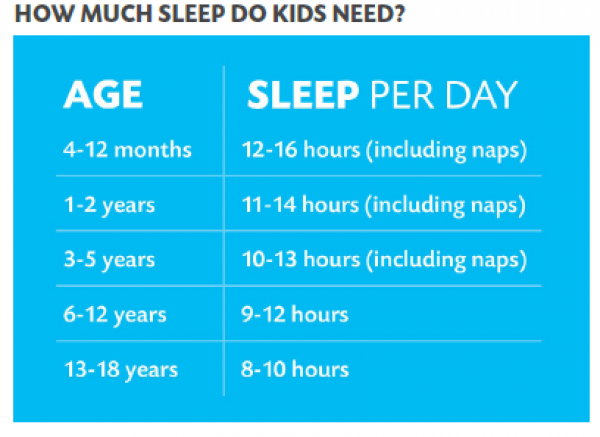November 15, 2018
How Kids Can Sleep Smarter and Perform Better
Is your child getting enough sleep to perform at their best?
Kids know they should eat well and be physically active, but they don’t always understand that healthy sleep is also an important part of a healthy lifestyle. And while they often wish they were getting more sleep, they report sleep as the lowest scoring health item for things that are important for their well-being. In fact, did you know that 71 percent of students are sleep deprived by an average of 1.7 hours a night1?
Let’s do the Math: How Sleep Affects Academic Performance and Achievement
Research shows that students need at least 8 hours of shuteye each night2 . But if they are not hitting the hay before 10:30 p.m. on school nights – and they have to be out the door by 7:15 a.m. (or earlier) to get to school – that’s less than the minimum hours needed for winding down, getting to sleep, and then getting ready for school in the morning.
Chronic sleep deprivation is a real problem. It’s not simply too much screen time or social media that’s to blame. Kids are staying up later and getting up earlier because school days are longer and they have more work to manage in a shorter amount of time outside the school bells. This cycle is stressful for students.
What Do Our Kids Think Could Help?
A 2018 survey, conducted by GENYOUth in partnership with Sleep Number, found that 42 percent of students say they don’t get enough sleep because of things they have to do, like homework, compared to 22 percent who report that it’s due to things they choose to do. We might think that students believe that less time on social media would result in more sleep. The reality? Kids believe help managing their time is the answer.
More than half sleep-deprived students believe they would handle stress better and do better in school if they got more vitamin ZZZ. Furthermore, students with higher grades are getting more sleep each night than those with lower grades.
Adults can help their kids be less busy and teach and support good sleep habits, such as bedtime routine.
Bed Times Matter!
According to the GENYOUth survey, 60 percent of students who get eight or more hours of sleep go to bed around the same time each night. Students who do not have a regular bedtime, about one-third of the survey respondents, get six or less hours of snooze time. Students with a set bedtime usually go to sleep around 10:00 p.m. Those without, on average, go to bed around 11:00 p.m. and are more likely to stay up past midnight.
So how much is enough? Is your child getting the adequate amount of quality sleep? Check out the American Academy of Sleep Medicine’s recommendations3.
What’s one step you can commit to help your child take to support better sleep?
Regular bed time? Later wake-up time? Better time management? Let us know by updating and sharing the message below on social media!
I support healthy sleep for my child by (FILL IN THE BLANK). Are you supporting healthy sleep? Learn more at HealthierGeneration.org/SmarterSleep #SmarterSleep
Share on Twitter | Share on Facebook (copy+paste the text above for Facebook)
Get tips, resources, activities and more to help kids sleep better.
Sleep Smarter. Perform Better. Digital Resource Center
References
- Sleep Number and GENYOUth Exercise Your Influence. Teens and Sleep: Back-to-School 2018. Retrieved from https://blog.sleepnumber.com/students-feel-helpless-why-sleep-gets-an-f/
- Journal of Clinical Sleep Medicine. (2016). Recommended Amount of Sleep for Pediatric Populations: A Consensus Statement of the American Academy of Sleep Medicine. Retrieved from http://www.sleepeducation.org/docs/default-document-library/pediatric-sleep-consensus.pdf
- American Academy of Sleep Medicine. (2017, February 9). Healthy Sleep Habits. Retrieved from http://www.sleepeducation.org/essentials-in-sleep/healthy-sleep-habits


